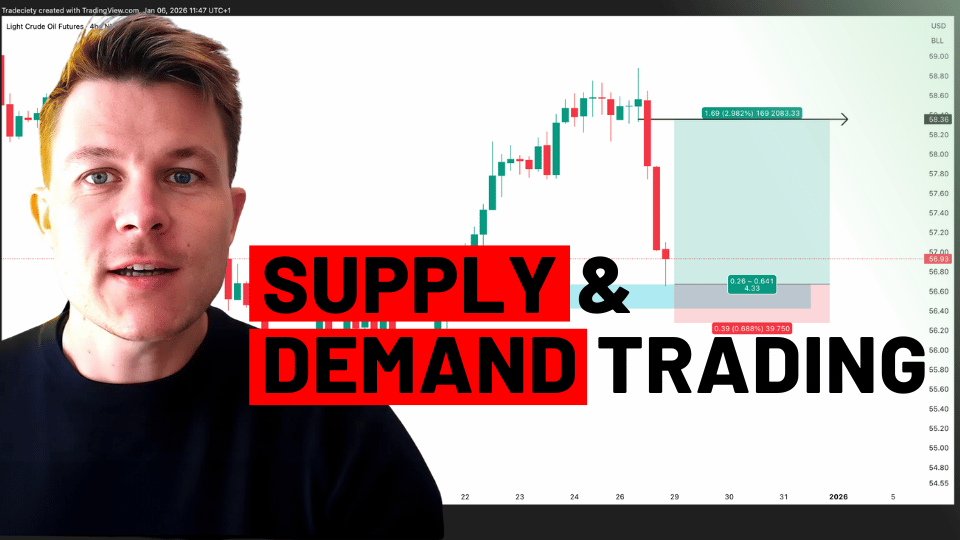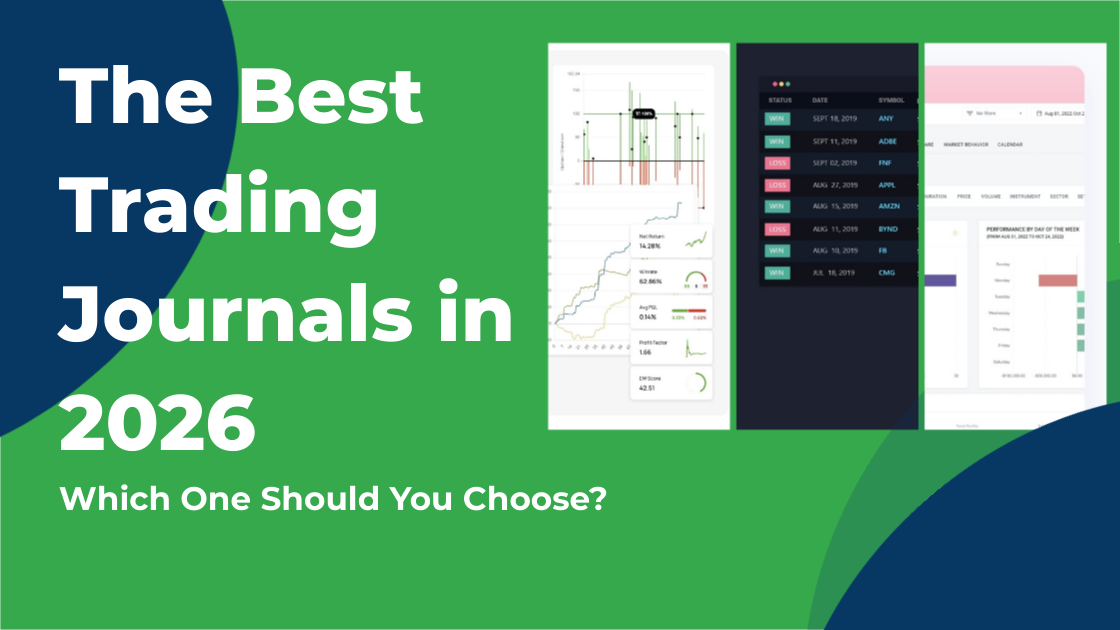Supply and Demand Trading in 2026
We have been trading supply and demand strategies for over ten years, and they have stood the test of time remarkably well. Supply and demand is...

Dive deep into the world of finance and high-stakes trading with this selection of movies and documentaries! From the exhilarating thrill of lucrative deals to the devastating consequences of unchecked greed, these films offer a captivating exploration of money, trading, ambition, and the human condition. Whether you're a seasoned trader or simply curious about the inner workings of Wall Street, this list has something to offer everyone.
In "Wall Street," ambitious young stockbroker Bud Fox lands a job at a ruthless firm led by the flamboyant Gordon Gekko. Gekko's mantra, "Greed is good," fuels a culture of excess and fraud. Bud thrives, selling risky penny stocks and lining his pockets through illegal schemes. He lives a lavish life filled with drugs, sex, and expensive toys.
However, Bud's world crumbles as the FBI closes in on the firm's corruption. His mentor, Gekko, throws him under the bus to save himself. Bud loses everything – his wealth, his wife, and his freedom. Facing prison time, Bud must choose between loyalty and self-preservation. He exposes Gekko's crimes, sacrificing his luxurious lifestyle for a chance at redemption.
"Wall Street" is a cautionary tale about the allure and dangers of unchecked ambition. It explores the moral decay that can fester in pursuit of wealth and the high price one pays for a life built on greed.
"Million Dollar Traders" is a British reality TV show inspired by the real-life experiment conducted by Richard Dennis in the 1980s. The series takes twelve ordinary people from various backgrounds and puts them through an intensive two-week training program led by hedge fund manager Lex van Dam. This crash course equips them with the knowledge and tools needed to navigate the stock market.
The competition then gets real. The number of contestants is whittled down to eight, and each is entrusted with a virtual £1 million (around USD 1 million at the time) to trade for two months. They operate from a simulated trading floor in London, with access to real-time market data and analysis tools.
The pressure is immense. These novices grapple with volatile markets, make crucial investment decisions, and face the constant threat of losing their virtual fortunes. The series captures not only the thrill of potential gains but also the emotional rollercoaster of potential losses. Viewers witness the contestants' triumphs and failures as they develop their trading skills and strategies.
"Million Dollar Traders" offers a glimpse into the fast-paced world of professional trading. It combines the drama of high-stakes decisions with the personal journeys of the contestants as they navigate this challenging and potentially lucrative endeavor.
"Wall Street Warriors" is a reality television series that offers an inside look into the lives of individuals working in the finance industry. The show follows a diverse cast of characters, including traders, analysts, fund managers, and entrepreneurs, as they navigate the fast-paced and competitive world of Wall Street.
Each episode provides viewers with a glimpse into the daily routines, challenges, and triumphs of these finance professionals. From the excitement of trading floors to the intense pressure of managing multimillion-dollar portfolios, "Wall Street Warriors" captures the highs and lows of life in finance.
The series explores various aspects of the financial industry, from the strategies employed by day traders to the complexities of investment banking deals. It also delves into the personal lives of the cast members, offering insight into the sacrifices they make to succeed in their careers.
Throughout the show, viewers gain valuable insights into the strategies, tactics, and mindsets that drive success on Wall Street. "Wall Street Warriors" provides an entertaining and informative portrayal of the finance industry, making it a must-watch for anyone interested in the world of high finance.
Inside Job delves into the 2008 financial crisis, exposing a web of corruption that led to millions losing their homes and jobs. Narrated by Matt Damon, the documentary argues that deregulation and a cozy relationship between Wall Street and Washington fueled the crisis.
It starts by showcasing Iceland's deregulation leading to bank collapse. Then, it dives into the US, tracing deregulation back to the 1980s and showing how it enabled risky financial instruments like Collateralized Debt Obligations (CDOs). These complex financial products were built on shaky mortgages, and when the housing bubble burst, the whole system came crashing down.
The documentary criticizes academic economists who downplayed risks and promoted deregulation, often having ties to the very financial institutions they studied. It highlights the moral hazard created by government bailouts, rewarding risky behavior with taxpayer money.
Inside Job exposes a system where greed and short-termism fueled a crisis with devastating consequences for ordinary people. It leaves viewers questioning the power of the financial industry and the role of government regulation.
"The Wolf of Wall Street" isn't a documentary, but a dark comedy chronicling the outrageous rise and fall of Jordan Belfort (Leonardo DiCaprio). In the 1980s, Jordan enters the high-pressure world of Wall Street, mentored by a hedonistic stockbroker (Matthew McConaughey) who preaches making obscene amounts of money. Jordan takes this advice to heart, founding his own firm, Stratton Oakmont.
Stratton Oakmont thrives by swindling investors with worthless penny stocks through high-pressure sales tactics and fraud. Jordan, along with his partner Donnie Azoff (Jonah Hill), indulge in a life of extravagant wealth, fueled by drugs, sex, and wild parties. Their debauchery grows alongside their financial success, blinding them to the FBI agent hot on their trail.
As the FBI closes in, Jordan's web of lies unravels. His relationships crumble, and his lavish lifestyle crumbles to dust. Faced with prison time, Jordan must choose between loyalty to his friends and saving himself. The Wolf of Wall Street exposes the emptiness of the "greed is good" mentality. It portrays a world where unchecked ambition leads to moral decay, highlighting the high cost of sacrificing your integrity for financial gain.
"Freakonomics," the 2010 documentary film based on the bestselling book by Steven D. Levitt and Stephen J. Dubner, offers valuable insights for traders and investors. The movie explores unconventional connections between economic principles and everyday phenomena, presenting compelling evidence of how incentives drive human behavior.
For traders and investors, understanding these underlying economic forces is crucial for making informed decisions in financial markets. The film's examination of incentives sheds light on the motivations behind market behaviors, helping traders anticipate trends and identify potential opportunities.
Moreover, "Freakonomics" challenges conventional wisdom and encourages viewers to question prevailing narratives, a mindset essential for navigating the complex and ever-changing landscape of finance. By adopting a critical and analytical approach inspired by the film, traders and investors can develop a deeper understanding of market dynamics and uncover hidden patterns that may elude others.
Overall, "Freakonomics" offers a fresh perspective on economics and human behavior, providing valuable insights that traders and investors can leverage to enhance their decision-making processes and achieve greater success in the financial markets.
The Big Short isn't a straightforward Wall Street drama. It follows a group of unconventional outsiders who predicted the 2008 housing market crash. Michael Burry (Christian Bale), an eccentric hedge fund manager, dives deep into financial data and discovers the housing market is built on a foundation of risky subprime mortgages. He convinces his investors to bet against the market using credit default swaps, a complex financial tool that profits if mortgages fail.
Meanwhile, Jared Vennett (Ryan Gosling), a cynical Wall Street banker, stumbles upon Burry's strategy and sees an opportunity. He teams up with investors Charlie Geller (Steve Carell) and Jamie Mai (Brad Pitt) to create their own bets against the housing market. Each character has their own motivations: Burry seeks to exploit a broken system, Vennett craves wealth, Geller is disgusted by Wall Street's greed, and Mai sees a chance to help his clients.
As the housing bubble inflates, the film uses dark humor and celebrity cameos to explain complex financial concepts. We see the characters struggle to convince others of the impending crash while traditional financial institutions remain oblivious. Ultimately, they profit immensely as the market collapses, but the film doesn't shy away from the human cost of the crisis. It leaves viewers pondering the ethics of profiting from disaster and the flaws in the financial system.
Margin Call dives into the frantic 24 hours leading up to the collapse of a major investment bank during the 2008 financial crisis. The drama unfolds as a young analyst, Peter Sullivan (Zachary Quinto), discovers a critical error in their risk models. These models expose the bank's massive holdings of toxic mortgage-backed securities on the verge of imploding.
Peter's discovery sets off a chain reaction. He alerts his mentor, Will Emerson (Paul Bettany), who confirms the dire situation. Together, they escalate the issue to increasingly senior executives, including head risk officer Sarah Robertson (Demi Moore) and ruthless CEO John Tuld (Jeremy Irons).
As the night progresses, the weight of the impending crisis becomes clear. Moral dilemmas arise as the executives grapple with their options. Should they unload these toxic assets before others catch on, potentially triggering a market meltdown? Or should they hold onto them, risking the bank's complete collapse and jeopardizing their careers and wealth?
Margin Call isn't a flashy financial thriller. The tension builds through intense dialogue and complex financial discussions. It explores the human cost of ambition within a system prioritizing profit over responsibility. We see characters sacrificing ethics and personal relationships to navigate the crisis, leaving the audience to ponder the consequences of unchecked greed and the human cost of financial instability.
In "Boiler Room," Seth (Giovanni Ribisi), a college dropout struggling financially, gets drawn into the high-pressure world of a stock brokerage firm. The firm, run by the charismatic but ruthless Jim Young (Ben Affleck), operates in a shady grey area, pushing penny stocks of dubious value through aggressive sales tactics.
Seth, initially hesitant, is seduced by the promise of easy money and a luxurious lifestyle. He excels at selling these near-worthless stocks, fueled by Young's motivational speeches and a competitive, cocaine-fueled environment.
However, as Seth climbs the ranks, he starts questioning the firm's ethics. He uncovers evidence that the company is engaged in illegal pump-and-dump schemes, artificially inflating stock prices before dumping them on unsuspecting investors.
Torn between loyalty to his friends and mentors and his growing moral unease, Seth faces a difficult decision. He can continue reaping the rewards of his success, turning a blind eye to the wrongdoing, or he can expose the firm and risk his newfound wealth and social standing.
"Boiler Room" is a cautionary tale about the allure and dangers of easy money. It explores the moral compromises young people face in the pursuit of success and the seductive power of a fast-paced, high-stakes environment.
"Billions" dives into the cutthroat world of high finance, specifically hedge funds. It centers on the power struggle between Bobby "Axe" Axelrod (Damian Lewis), a ruthless billionaire hedge fund king, and Chuck Rhoades (Paul Giamatti), a brilliant but ambitious U.S. Attorney determined to bring Axe down.
The series isn't just about flashy cars and opulent lifestyles. It delves into the complex strategies and psychological warfare employed by these financial giants. Axe leverages his intuition and calculated risks to make bold moves, while Rhoades uses his legal expertise and political connections to build intricate cases against Axe.
Here's why "Billions" is a must-watch for traders:
"Billions" is more than just entertainment; it's a captivating exploration of the human psyche within the high-pressure world of finance. It provides valuable takeaways for traders by showcasing the emotional intelligence, strategic thinking, and risk management skills necessary to navigate the ever-changing financial landscape.
"Trading Places" is a hilarious social satire that flips the script on wealth and privilege. Louis Winthorpe III (Dan Aykroyd), a snobby commodities broker, and Billy Ray Valentine (Eddie Murphy), a streetwise hustler, become unwitting pawns in a cruel bet made by the wealthy Randolph and Mortimer Duke brothers (Ralph Bellamy and Don Ameche).
The Dukes, convinced success is based on nurture, not nature, decide to switch Louis and Billy's lives. Louis loses his luxurious apartment and job, landing in poverty. Billy, on the other hand, is thrust into Louis' world of wealth and privilege.
Through a series of hilarious misadventures, Billy thrives in the stock market with his street smarts and intuition. Louis, however, struggles to adapt to his new circumstances. As Billy learns the ropes of high finance, he uncovers the Dukes' corrupt manipulation of orange juice futures prices.
With the help of a beautiful commodities trader (Jamie Lee Curtis), Billy and Louis team up to expose the Dukes' scheme. In the end, the tables are turned. Billy exposes the corruption, earns a fortune, and even wins the girl. Louis, humbled by his experience, regains his humanity and starts afresh.
"Trading Places" is a fun and thought-provoking comedy that entertains while questioning the nature of wealth and opportunity. It highlights the absurdity of class differences and the power dynamics at play in the financial world.
So buckle up, grab some popcorn, and prepare to learn, laugh, and be captivated by the stories of fortunes won and lost, ethical lines blurred and crossed, and the ever-turning gears of the financial machine.

We have been trading supply and demand strategies for over ten years, and they have stood the test of time remarkably well. Supply and demand is...

3 min read
Choosing the right trading journal is essential for traders wanting to analyze performance, refine strategies, and improve consistency. In this...

3 min read
“95% of all traders fail” is the most commonly used trading related statistic around the internet. But no research paper exists that proves this...